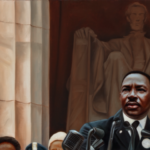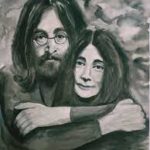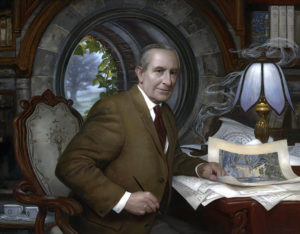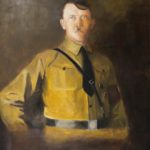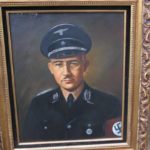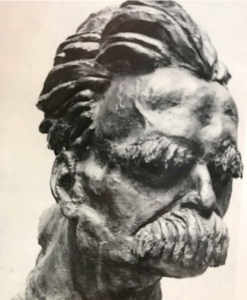Or:
How the Woke monster originated
The opening pages of the next chapter, ‘Love: 1967, Abbey Road’ are so important in showing how the virus of Christian morality continued to mutate into neochristian morality, that I will quote them almost in full:
Sunday, 25 June. In St John’s Wood, one of London’s most affluent neighbourhoods, churchgoers were heading to evensong. Not the world’s most famous band, though. The Beatles were booked to play their largest-ever gig. For the first time, a programme featuring live sequences from different countries was to be broadcast simultaneously around the world—and the British Broadcasting Corporation, for its segment, had put up John Lennon, Paul McCartney, George Harrison and Ringo Starr. The studios on Abbey Road were where, for the past five years, the Beatles had been recording the songs that had transformed popular music, and made them the most idolised young men on the planet. Now, before an audience of 350 million, they were recording their latest single. The song, with a chorus that anyone could sing, was joyously, catchily anthemic. Its message, written on cardboard placards in an assortment of languages, was intended to be readily accessible to a global village. Flowers, streamers and balloons all added to the sense of a party. John Lennon, alternately singing and chewing heavily on a wad of gum, offered the watching world a prescription with which neither Aquinas, nor Augustine, nor Saint Paul would have disagreed: ‘all you need is love’.
God, after all, was love. This was what it said in the Bible. For two thousand years, men and women had been pondering this revelation. Love, and do as you will. Many were the Christians who, over the course of the centuries, had sought to put this precept of Augustine’s into practice. For then, as a Hussite preacher had put it, ‘Paradise will open to us, benevolence will be multiplied, and perfect love will abound.’ But what if there were wolves? What then were the lambs to do? The Beatles themselves had grown up in a world scarred by war. Great stretches of Liverpool, their native city, had been levelled by German bombs. Their apprenticeship as a band had been in Hamburg, served in clubs manned by limbless ex-Nazis. Now, even as they sang their message of peace, the world again lay in the shadow of conflict.
Only three weeks before the broadcast from Abbey Road, war had broken out in the Holy Land. The blackened carcasses of Egyptian and Syrian planes littered landscapes once trodden by biblical patriarchs. Israel, the Jewish homeland promised by the British in 1917, and which had finally been founded in 1948, had won in only six days a stunning victory over neighbours pledged to its annihilation. Jerusalem, the city of David, was—for the first time since the age of the Caesars—under Jewish rule. Yet this offered no resolution to the despair and misery of those displaced from what had previously been Palestine. Just the opposite. Across the world, like napalm in a Vietnamese jungle, hatreds seemed to be burning out of control. Most terrifying of all were the tensions between the world’s two superpowers, the Soviet Union and the United States. Victory over Hitler had brought Russian troops into the heart of Europe. Communist governments had been installed in ancient Christian capitals: Warsaw, Budapest, Prague. An iron curtain now ran across the continent. Armed as both sides were with nuclear missiles, weapons so lethal that they had the potential to wipe out all of life on earth, the stakes were grown apocalyptic. Humanity had arrogated to itself what had always previously been viewed as a divine prerogative: the power to end the world.
How, then, could love possibly be enough? The Beatles—although roundly mocked for their message—were not alone in believing that it might be. A decade earlier, in the depths of the American South, a Baptist pastor named Martin Luther King had pondered what Christ had meant by urging his followers to love their enemies. ‘Far from being the pious injunction of a utopian dreamer, this command is an absolute necessity for the survival of our civilisation. Yes, it is love that will save our world and our civilization, love even for enemies.’ King had not claimed, as the Beatles would in ‘All You Need Is Love’, that it was easy. He spoke as a black man, to a black congregation, living in a society blighted by institutionalised oppression. The civil war, although it had ended slavery, had not ended racism and segregation…
In the spring of 1963, writing from jail, he had reflected on how Saint Paul had carried the gospel of freedom to where it was most needed, heedless of the risks. Summoning the white clergy to break their silence and to speak out against the injustices suffered by blacks, King had invoked the authority of Aquinas and of his own namesake, Martin Luther. Above all, though— answering the charge of extremism—he had appealed to the example of his Saviour. Laws that sanctioned the hatred and persecution of one race by another, he declared, were laws that Christ himself would have broken. ‘Was not Jesus an extremist for love?’
The campaign for civil rights gave to Christianity an overt centrality in American politics that it had not had since the decades before the Civil War. King, by stirring the slumbering conscience of white Christians, succeeded in setting his country on a transformative new path. To talk of love as Paul had talked of it, as a thing greater than prophecy, or knowledge, or faith, had once again become a revolutionary act. King’s dream, that the glory of the Lord would be revealed, and all flesh see it together, helped to animate a great yearning across America—in West Coast coffee shops as in Alabama churches, on verdant campuses as on picket lines, among attorneys as among refuse-workers—for justice to roll on like a river, and righteousness like a never-failing stream. This was the same vision of progress that, in the eighteenth century, had inspired Quakers and Evangelicals to campaign for the abolition of slavery; but now, in the 1960s, the spark that had set it to flame with a renewed brilliance was the faith of African Americans…
That the Beatles agreed with King on the importance of love and had refused as a matter of principle to play for segregated audiences, did not mean that they were—as James Brown might have put it—‘holy’. Even though Lennon had first met McCartney at a church fête, all four had long since abandoned their childhood Christianity. It was, in the words of McCartney, a ‘goody-goody thing’: fine, perhaps, for a lonely woman wearing a face that she kept in a jar by the door, but not for a band that had conquered the world. Churches were stuffy, oldfashioned, boring—everything that the Beatles were not. In England, even the odd bishop had begun to suggest that the traditional Christian understanding of God was outmoded, and that the only rule was love.
In 1966, when Lennon claimed in a newspaper interview that the Beatles were ‘more popular than Jesus’, eyebrows were barely raised in his home country. Only four months later, after his comment had been reprinted in an American magazine, did the backlash hit. Pastors across the United States had long been suspicious of the Beatles. This was especially so in the South—the Bible Belt. Preachers there—unwittingly backing Lennon’s point—fretted that Beatlemania had become a form of idolatry; some even worried that it was all a communist plot. To many white evangelicals—shamed by the summons to repentance issued them by King, baffled by the sense of a moral fervour that had originated outside their own churches, and horrified by the spectacle of their daughters screaming and wetting themselves at the sight of four peculiar-looking Englishmen—the chance to trash Beatles records came as a blessed relief. Simultaneously, to racists unpersuaded by the justice of the civil rights movement, it provided an opportunity to rally the troops. The Ku Klux Klan leapt at the chance to cast themselves as the defender of Protestant values. Not content with burning records, they set to burning Beatles wigs. The band’s distinctive hairstyle—a shaggy moptop—seemed to clean-cut Klansmen a blasphemy in itself. ‘It’s hard for me to tell through the mopheads,’ one of them snarled, ‘whether they’re even white or black.’
None of which did much to alter Lennon’s views on Christianity. The Beatles did not—as Martin Luther King had done—derive their understanding of love as the force that animated the universe from a close reading of scripture. Instead, they took it for granted. Cut loose from its theological moorings, the distinctively Christian understanding of love that had done so much to animate the civil rights movement began to float free over an ever more psychedelic landscape. The Beatles were not alone, that summer of 1967, in ‘turning funny’. Beads and bongs were everywhere. Evangelicals were appalled. To them, the emergence of long-haired freaks with flowers in their hair seemed sure confirmation of the satanic turn that the world was taking. Blissed-out talk of peace and love was pernicious sloganeering: just a cover for drugs and sex…
Then, the following April, Martin Luther King was shot dead. An entire era seemed to have been gunned down with him: one in which liberals and conservatives, black progressives and white evangelicals, had felt able— however inadequately—to feel joined by a shared sense of purpose. As news of King’s assassination flashed across America, cities began to burn: Chicago, Washington, Baltimore. Black militants, impatient even before King’s murder with his pacifism and talk of love, pushed for violent confrontation with the white establishment. Many openly derided Christianity as a slave religion. Other activists, following where King’s campaign against racism had led, demanded the righting of what they saw as no less grievous sins. If it were wrong for blacks to be discriminated against, then why not women, or homosexuals? [pages 488-493]
My bold type.
Increasingly, to Americans disoriented by the moral whirligig of the age, Evangelicals promised solid ground. A place of refuge, though, might just as well be a place under siege. To many Evangelicals, feminism and the gay rights movement were an assault on Christianity itself. Equally, to many feminists and gay activists, Christianity appeared synonymous with everything that they were struggling against: injustice, and bigotry, and persecution. God, they were told, hates fags.
But did he? Conservatives, when they charged their opponents with breaking biblical commandments, had the heft of two thousand years of Christian tradition behind them; but so too, when they pressed for gender equality or gay rights, did liberals. Their immediate model and inspiration was, after all, a Baptist preacher. ‘There is no graded scale of essential worth,’ King had written a year before his assassination. ‘Every human being has etched in his personality the indelible stamp of the Creator. Every man must be respected because God loves him.’
Every woman too, a feminist might have added. Yet King’s words, while certainly bearing witness to an instinctive strain of patriarchy within Christianity, bore witness as well to why, across the Western world, this was coming to seem a problem. That every human being possessed an equal dignity was not remotely self-evident a truth. A Roman would have laughed at it. To campaign against discrimination on the grounds of gender or sexuality, however, was to depend on large numbers of people sharing in a common assumption: that everyone possessed an inherent worth.
The origins of this principle—as Nietzsche had so contemptuously pointed out—lay not in the French Revolution, nor in the Declaration of Independence, nor in the Enlightenment, but in the Bible. Ambivalences that came to roil Western society in the 1970s had always been perfectly manifest in the letters of Paul. Writing to the Corinthians, the apostle had pronounced that man was the head of woman; writing to the Galatians, he had exulted that there was no man or woman in Christ. Balancing his stern condemnation of same-sex relationships had been his rapturous praise of love. Raised a Pharisee, learned in the Law of Moses, he had come to proclaim the primacy of conscience. The knowledge of what constituted a just society was written not with ink but with the Spirit of the living God, not on tablets of stone but on human hearts. Love, and do as you will. It was—as the entire course of Christian history so vividly demonstrated—a formula for revolution.
‘The wind blows wherever it pleases.’ That the times they were a-changin’ was a message Christ himself had taught. Again and again, Christians had found themselves touched by God’s spirit; again and again, they had found themselves brought by it into the light. Now, though, the Spirit had taken on a new form. No longer Christian, it had become a vibe. Not to get down with it was to be stranded on the wrong side of history. The concept of progress, unyoked from the theology that had given it birth, had begun to leave Christianity trailing in its wake. [pages 494-495]
My bold.
The choice that faced churches—an agonisingly difficult one—was whether to sit in the dust, shaking their fists at it in impotent rage, or whether to run and scramble in a desperate attempt to catch up with it. Should women be allowed to become priests? Should homosexuality be condemned as sodomy or praised as love? Should the age-old Christian project of trammelling sexual appetites be maintained or eased? None of these questions were easily answered. To those who took them seriously, they ensured endless and pained debate. To those who did not, they provided yet further evidence—if evidence were needed—that Christianity was on its way out. John Lennon had been right. ‘It will vanish and shrink. I needn’t argue about that; I know I’m right and I will be proved right.’
Yet atheists faced challenges of their own. Christians were not alone in struggling to square the rival demands of tradition and progress. Lennon, after walking out on his song-writing partnership with McCartney, celebrated his liberation with a song that listed Jesus alongside the Beatles as idols in which he no longer believed. Then, in October 1971, he released a new single: ‘Imagine’. The song offered Lennon’s prescription for global peace.
Imagine there’s no heaven, he sang, no hell below us. Yet the lyrics were religious through and through. Dreaming of a better world, a brotherhood of man, was a venerable tradition in Lennon’s neck of the woods. St George’s Hill, his home throughout the heyday of the Beatles, was where the Diggers had laboured three hundred years previously. Rather than emulate Winstanley, however, Lennon had holed up inside a gated community, complete with a Rolls-Royce and swimming pool. ‘One wonders what they do with all their dough.’ So a pastor had mused back in 1966. The video of ‘Imagine’, in which Lennon was seen gliding around his recently purchased seventy-two-acre Berkshire estate, provided the answer. In its hypocrisy no less than in its dreams of a universal peace, Lennon’s atheism was recognisably bred of Christian marrow. A good preacher, however, was always able to take his flock with him. The spectacle of Lennon imagining a world without possessions while sitting in a huge mansion did nothing to put off his admirers. As Nietzsche spun furiously in his grave, ‘Imagine’ became the anthem of atheism. A decade later, when Lennon was shot dead by a crazed fan, he was mourned not just as one half of the greatest song-writing partnership of the twentieth century, but as a martyr. [pages 495-496]
The fact that the youth didn’t revolt when I was much younger at the sight of Lennon disowning the English roses of his country to marry a fucking non-white, means that they have embraced the cause of their ethno-suicide.
Not everyone was convinced. ‘Now, since his death, he’s become Martin Luther Lennon.’ Paul McCartney had known Lennon too well ever to mistake him for a saint. His joke, though, was also a tribute to King: a man who had flown into the light of the dark black night. ‘Life’s most persistent and urgent question is, “What are you doing for others?”’ McCartney, for all his dismissal of ‘goody goody stuff’, was not oblivious to the tug of an appeal like this.
In 1985, asked to help relieve a devastating famine in Ethiopia by taking part in the world’s largest-ever concert, he readily agreed. Live Aid, staged simultaneously in London and Philadelphia, the city of brotherly love, was broadcast to billions. Musicians who had spent their careers variously bedding groupies and snorting coke off trays balanced on the heads of dwarves played sets in aid of the starving. As night fell over London, and the concert in Wembley stadium reached its climax, lights picked out McCartney at a piano. The number he sang, ‘Let It Be’, had been the last single to be released by the Beatles while they were still together. ‘When I find myself in times of trouble, Mother Mary comes to me.’ Who was Mary? Perhaps, as McCartney himself claimed, his mother; but perhaps, as Lennon had darkly suspected, and many Catholics had come to believe, the Virgin. Whatever the truth, no one that night could hear him. His microphone had cut out.
It was a performance perfectly appropriate to the paradoxes of the age. [pages 496-497]
Think of the stunning woman in my previous post. Couldn’t Lennon, with all his fame and money, have married someone like her? In my humble opinion, all whites—racialists included!—who listen not only to the Beatles but to rock in general, or its contemporary derivatives, are betraying their race. Incidentally, I’m glad Mark David Chapman killed this guy. The most subversive thing an American ruler could do in the future is to pardon him, get him out of prison.
